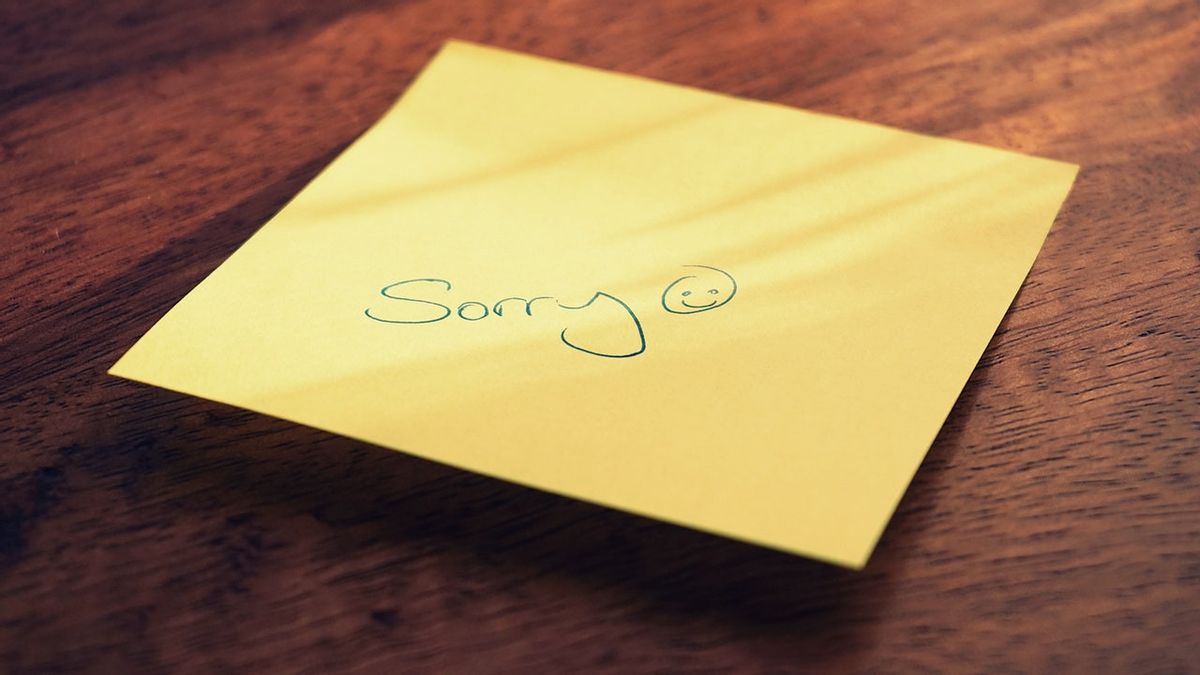JAKARTA - It is a moral obligation to apologize if you make a mistake. However, many also often say sorry for things that are not actually a mistake. There are also people who consider apologies to be a habit. But did you know that apologizing too often is actually not good? Here's the explanation:
You will be underestimated
Making no mistake but often apologize. This will make you labeled as a person who is not confident, careless, rigid, and does not dare to express an opinion. Others may be disrespectful and disparaging to you because you are constantly apologizing.
It's a good idea to learn to communicate better so you can speak up more courageously if you're innocent. Even if there is a misunderstanding, it would be better to talk about it so that others understand the perspective, not directly apologize which becomes meaningless.
You're less trustworthy
The purpose of an apology is actually good, which is that you admit a mistake, ask others to forgive you, then promise not to repeat the same thing by correcting the mistake. But, if you constantly apologize, people don't believe your words, do you really apologize sincerely or just a formality?
SEE ALSO:
For example, at work, you are coming late to an important meeting or do not understand correctly what to do, or there is a mistake in the work. It's natural to apologize for being wrong and trying to perform better in the future. But if you're still like that, in the sense of repeating the same thing and then ending up apologizing, it's natural that someone else loses their trust because of you.
People will see you as an annoying person
Maybe at first, you think people will respect you if you apologize. If it's fit for the purpose, it's true that people will respect it. However, if the words of apology are spoken over and over again at all times, you are instead considered annoying.
For example, in a romantic relationship, couples really don't like it if you're late when you've had an appointment. It can also be that you do annoying things and clearly know that they are not liked by your partner. However, you continue to do so and also always apologize.
In this context, you apologize for being guilty. However, you also don't learn and correct the mistakes and repeat them again. The apology here is just a formality and less meaningful to the person who accepted it.
The English, Chinese, Japanese, Arabic, and French versions are automatically generated by the AI. So there may still be inaccuracies in translating, please always see Indonesian as our main language. (system supported by DigitalSiber.id)


















